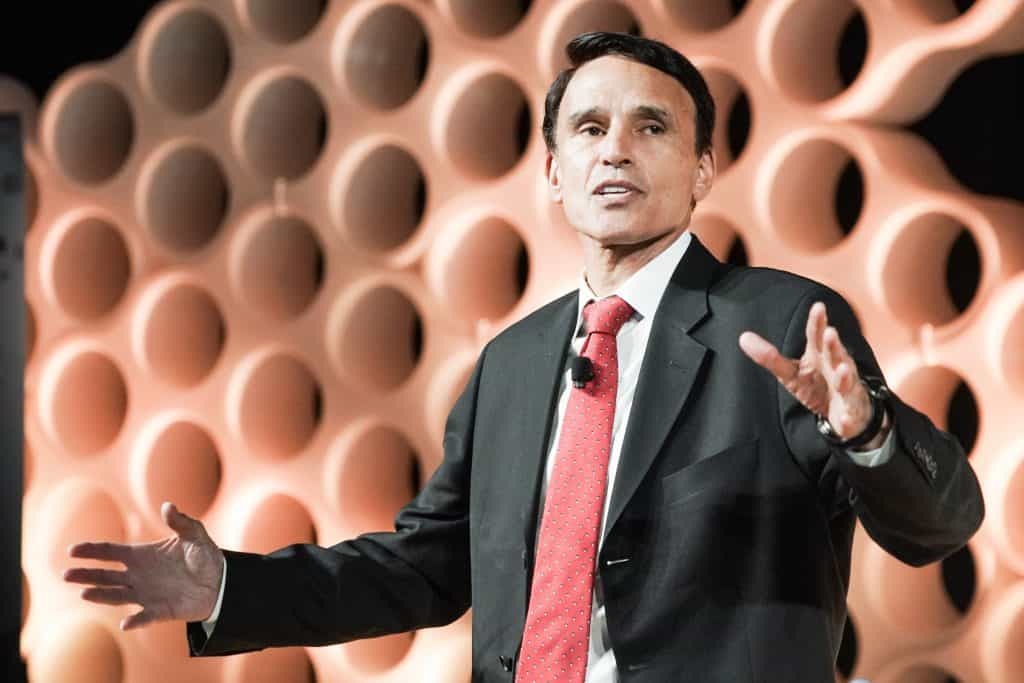As I sat in the audience, I was impressed by the universality of healthcare challenges being discussed, finding that many of the issues we experience in the United States are equally present in other nations.

A common frustration for physicians, for example, is the absence of modern technology, making it difficult to deliver superb medical care to patients. The role of primary care seems underappreciated (and underpaid) the world over, as fewer aspiring healthcare professionals choose this path. Leaders from around the globe consistently spoke about the over-saturation of hospitals and overpopulation of medical specialists, many of whom lack the experience necessary to practice at the top of their profession.
Rising costs. Resistance to change. Physician burnout. Patient frustrations with the lack of convenience and consumerism throughout the worldwide healthcare industry. These issues are practically everywhere.
As I took the stage, I wanted to describe the kinds of issues so many nations face, the kind that slow progress and hold healthcare back from reaching its fullest potential. And then I wanted to hear from those in the audience.
One of the most interesting questions I received was about the difficulties of scaling successful solutions – meaning, how might a program that saves lives in one nation translate to multiple other countries?
Two thoughts there:
- Progress requires an all-in commitment, either from the government or big business. With neither, long-term solutions will lack funding and wither.
- Any smart physician, inventor or leader can build a successful pilot program. Widespread change begins with rethinking how the healthcare system is structured, reimbursed, technologically supported and led.
I received another question about which technologies actually work. Having implemented and studied many of them as CEO of The Permanente Medical Group, I pointed to (a) video/virtual care, (b) data analytics and (c) Artificial Intelligence (AI).
 I was most moved during my time at the World Hospital Congress by the audience members who spoke of the difficult they experience in finding compassionate end-of-life care for their family members and loved ones. In one case, it was physicians refusing to provide the compassion a family needed in their moment of need. In another instance, it was a nation’s systemic failure. And in a third, the person spoke of inane and outdated regulations that prevented doctors from showing empathy or kindness. In each case, moments that should have been spent celebrating proved heartbreaking and disappointing. No matter where in the world we live or work, all of us must recognize that every patient deserves dignity in death.
I was most moved during my time at the World Hospital Congress by the audience members who spoke of the difficult they experience in finding compassionate end-of-life care for their family members and loved ones. In one case, it was physicians refusing to provide the compassion a family needed in their moment of need. In another instance, it was a nation’s systemic failure. And in a third, the person spoke of inane and outdated regulations that prevented doctors from showing empathy or kindness. In each case, moments that should have been spent celebrating proved heartbreaking and disappointing. No matter where in the world we live or work, all of us must recognize that every patient deserves dignity in death.
I would like to commend the leaders of the sponsoring organizations for bringing together a diverse set of presenters and participants. Alison Verhoeven, chief executive of the Australian Healthcare and Hospitals Association (AHHA), Dr. Francisco Balestrin, president of the International Hospital Federation (IHF), and Dr. Deborah Cole, chair of Australian Healthcare and Hospital Association board. I also would like to think Lisa Robey, engagement and business director of the Australian Healthcare and Hospital Association, and Brodi Newsome, along with all her colleagues who helped coordinate this remarkable event.
I believe there is much we can learn in the United States from other countries and I would encourage anyone interested in hospital care, population health and patient engagement to attend the 43rd annual conference. I guarantee you’ll learn much and have a wonderful experience.
Dr. Robert Pearl is the former CEO of The Permanente Medical Group, the nation’s largest physician group. He’s the bestselling author of “Mistreated: Why We Think We’re Getting Good Health Care–And Why We’re Usually Wrong” and a Stanford University professor. Follow him on Twitter @RobertPearlMD.






